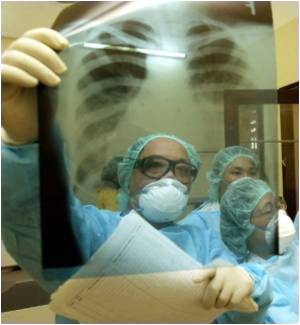In a new study it has been highlighted that combination of epigentic and molecular targeted therapy are found to be effective in treating advanced lung cancer conditions.

The study, called ENCORE 401, was designed to evaluate whether entinostat, a novel epigenetic therapy that is given orally, can be used to delay or overcome the resistance to erlotinib in patients with advanced lung cancer.
The research was a randomised phase II placebo controlled clinical trial in advanced lung cancer examining whether entinostat in combination with erlotinib is better than erlotinib alone and whether it can be safely tolerated by patients.
As part of the clinical trial, patients underwent an analysis of various tissue and blood biomarkers.
The results demonstrated that patients with elevated E-cadherin (a molecular marker) who were administered entinostat in combination with erlotinib had a significantly improved overall survival as compared to patients treated with erlotinib alone.
Approximately 40 percent of non-small cell lung cancer patients have elevated E-cadherin.
Advertisement
"The results of ENCORE 401 identified a subset of lung cancer patients for whom the combination of epigenetic therapy, entinostat and molecular targeted therapy, erlotinib, achieved promising results," said Robert M. Jotte, principal investigator of the study and director of thoracic oncology at Rocky Mountain Cancer Center Midtown Division in Denver and developmental co-chair of US Oncology Lung Committee.
Advertisement
The research was presented at the 2010 Chicago Multidisciplinary Symposium in Thoracic Oncology.
Source-ANI











